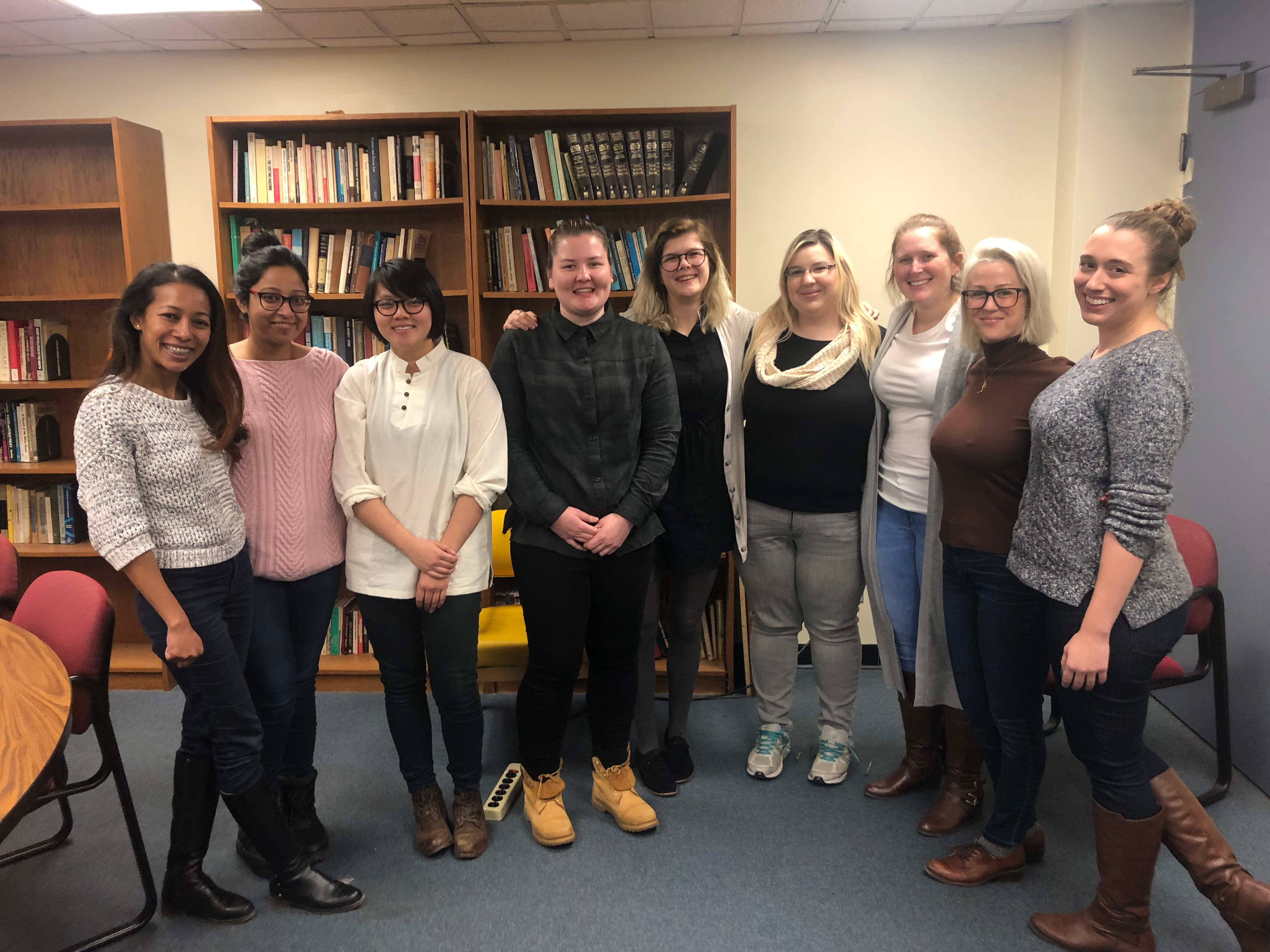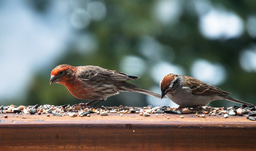
Writing is hard.
This is true for everyone, but within political science women publish fewer articles on average than men and work written by women is cited less often. Speaking to this year’s theme for International Women’s Day, I am sharing one way our department has worked toward balance for better: by establishing a graduate women’s writing group.
Inspired by the faculty women’s writing groups described by Dr. Cassese and Dr. Holman, a fellow graduate student (Caitlin L. Davies) and I founded our graduate women’s writing group. A majority of the women in our department participate in the weekly meetings and it has been a great way for us all to improve our productivity. It has just as importantly helped us establish a wonderful community of women within our department.

The Stony Brook Political Science Graduate Women's Writing Group.
Each week, our writing group accomplished three things. First, we each publicly set a writing goal for the next week, as well as announce whether or not we met our goal from the previous week. These goals are concrete; rather than saying “I’ll work on my paper,” we set goals like “I’ll finish the methods section of my paper.” This way we can better hold ourselves and each other accountable, as well as make the tasks we need to accomplish seem more manageable. These goals are also not the same as our course deadlines. Instead, they are meant to either prevent procrastination on big assignments by breaking them down into smaller goals or promote work on projects outside of our seminars. My goal for this week was to finish this post!
We write each goal down in our “Goals Notebook,” and the next week tell the group whether or not we accomplished what we set out to do. We keep track of whether or not members met their goals each week using stickers in the notebook. It is easy to put off writing when coursework, teaching, and the other duties that come along with being a graduate student get in the way. By setting concrete and public goals, we hold each other accountable and know when to check in on a friend falling behind. By setting public goals we also get to hear about the amazing projects being carried out by all the women in our department.
Second, at each weekly meeting we write. We set aside at least an hour where we sit together and quietly work on our respective projects. In this way we have established protected time for our own work where we can comfortably turn down other obligations and meetings.
Finally, the weekly meeting is a great way for us to check in with each other and discuss any problems we’re facing. Because our group spans all cohorts in the department, the more advanced students get a chance to pass advice on to the new students. It’s a chance to commiserate over rejections and celebrate our success from the week. This community has spilled out of our weekly meetings in a lot of amazing ways. We have regular happy hours, and when women from other universities come to give talks in the department, we host them for lunch or mentoring meetings.
One thing that did not work well for us was trying to institute a formal system of editing each other’s’ writing. We tried having one member share a working project with the group every week for feedback. However, it ultimately added too much pressure both to produce work and devote time to provide feedback for others. Since this experiment, we have focused instead on creating an environment where we feel comfortable asking each other for feedback as we need it. In theory, a more formal system would improve all of our work and it could certainly be successful in other graduate women’s writing groups.
A dedicated writing group would of course be beneficial to all graduate students, but the women’s writing group has the added benefit of creating a strong network of women who support each other as we overcome gender-specific problems in academia. We encourage each other to submit our writing to conferences and journals, we cite each other, and talk about the work of other women in the discipline that should be cited more. We certainly aren’t the first women’s writing group, but I’m hoping that by sharing the things that have worked well for us (as well as some of the things that haven’t), we can encourage other graduate students to form their own writing groups.
Writing is still hard, but it’s much more enjoyable now that we work through it together.

Please sign in or register for FREE
If you are a registered user on Research Communities by Springer Nature, please sign in
Thanks for the great post, and for sharing tips on how your group operates and what has or hasn't worked - hopefully it inspires others to follow your lead!